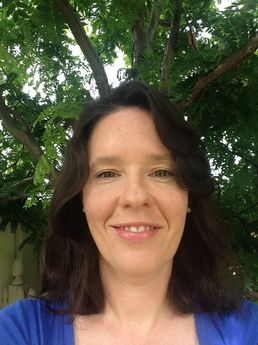Adelaide Selective Mutism Classroom Support

Hi, I’m Susannah, a Mum of two children who have had Selective Mutism. I successfully carried out treatment for my children within their school over a number of years.
- I will coach you in how best to help your SM child within the Australian School System and how to navigate the health care system for appropriate diagnosis and treatment.
- I can advocate for your child and your family directly with your child’s school and educate your child’s teacher on strategies for success in the classroom. As a former midwife, I am experienced in advocating for others in delicate situations where they may feel powerless and where I may have to stand up to someone in authority in a respectful but assertive way.
- The above services can be provided remotely for parents all over Australia.
- I have WWCC police check and attend first aid courses annually.
- I do not diagnose Selective Mutism – this needs to be done by an appropriate professional such as a psychologist, psychiatrist or paediatrician. There are no SM specialists in Adelaide so I can guide you through contacting experts interstate.
|
Check out my blog articles on Selective Mutism, including the story of our own experiences here. Visit my dedicated Facebook page for Adelaide Selective Mutism Classroom Support
|
Why do you have such a strong interest in Selective Mutism?
They say necessity is the mother of invention and as a Mum of two children who have had Selective Mutism – one who has fully recovered and one who is making great progress on the road to recovery – I have had no choice but to become something of a self-taught expert on Selective Mutism. It’s also said ‘A Worried Mother Does Better Research Than The FBI’ and I have found this to be true! There are many parents who have travelled this path who are a great help and support to others just beginning the process of diagnosis and treatment. In my case, having two children with the disorder has given me an even greater exposure to treatment techniques. SM presents very differently in individual children, even within the same family. In addition, coming from a health care background, I naturally approach things from a scientific perspective and set out to learn everything I could about SM.
They say necessity is the mother of invention and as a Mum of two children who have had Selective Mutism – one who has fully recovered and one who is making great progress on the road to recovery – I have had no choice but to become something of a self-taught expert on Selective Mutism. It’s also said ‘A Worried Mother Does Better Research Than The FBI’ and I have found this to be true! There are many parents who have travelled this path who are a great help and support to others just beginning the process of diagnosis and treatment. In my case, having two children with the disorder has given me an even greater exposure to treatment techniques. SM presents very differently in individual children, even within the same family. In addition, coming from a health care background, I naturally approach things from a scientific perspective and set out to learn everything I could about SM.

Selective Mutism runs in my husband’s family over three generations, though of course back in those days it was not diagnosed and people were thought to be just ‘very shy’ or defiant. There are some people on our family tree who have suffered some serious consequences of their SM going untreated. I wanted to ensure that my children would not suffer the same fate and this has driven me on (somewhat compulsively at times!) over seven years of treatment to meticulously research this disorder.
I thought once my children had recovered from Selective Mutism I would never want to think about SM ever again and just move on with my life and my career. However, as I now see the light at the end of the tunnel on this SM journey for our family, I feel that to let all that knowledge slip away would be a terrible waste, especially as I can use what I’ve learned to help other families. I can reach the maximum number of people by writing a book, but as a working Mum with another book already in progress, I can’t see anything happening very quickly. I need to keep my SM knowledge stores fresh by regularly accessing them!
I thought once my children had recovered from Selective Mutism I would never want to think about SM ever again and just move on with my life and my career. However, as I now see the light at the end of the tunnel on this SM journey for our family, I feel that to let all that knowledge slip away would be a terrible waste, especially as I can use what I’ve learned to help other families. I can reach the maximum number of people by writing a book, but as a working Mum with another book already in progress, I can’t see anything happening very quickly. I need to keep my SM knowledge stores fresh by regularly accessing them!
Why do you feel there is a need for your service, what can you offer that our psychologist can’t?
My service is not intended to replace psychology support – it’s intended to complement it. Psychologists can provide a diagnosis of Selective Mutism, work with your child in their office, support you as a parent, give you strategies to feed back to the school and will occasionally, if you are lucky, carry out a school visit to observe your child in class and meet the teacher. Very rarely do they provide treatment within the school environment. For very young children and/or those with very high anxiety, psychology support can be of limited benefit since the child can’t talk to the psychologist about their feelings, because they are either too young to have the insight or too anxious to talk to the psychologist! Even if they are able to build a rapport and become verbal with the psych in the consulting rooms, since the school environment is the place where the child’s anxieties are usually at their greatest, the school environment should be the focus of treatment.
What’s lacking in Adelaide and all around Australia is a service where a support worker who actually understands SM can work with you and your child's school, actually putting in place those strategies recommended by the psychologist and helping take those first steps towards becoming verbal.
Sometimes parents privately pay existing SSO’s from their child’s school to support their child in class or bring in a private support worker. Once someone has grasped how to approach a child with SM, anyone can do this, but it takes a while to get the hang of it. I can coach you or your child's support worker on how to do this. This can be done with some in person, in class support if your school will permit this, but eventually you or the support worker can do this independently with ongoing phone support by me to tweak things.
Most children with SM will still have some general anxiety once they begin speaking and at that point more help from a psychologist is very useful as they can then communicate with the psychologist and learn how to understand and manage their own anxiety.
It’s extremely distressing and anxiety provoking for parents to watch their child suffer with a mental disorder which if unresolved could affect their ability to complete their education, make friends, get a job or find a partner and could lead to other more serious mental health problems. It’s made all the more distressing that it is a poorly understood disorder. There are very few psychologists around who are truly experienced in treating SM, most teachers have never taught a child with SM, have no strategies for how to accommodate an SM child in their class and funding for treatment is almost non existent.
When you are (understandably) very emotional it can be hard to keep a level head and to advocate for your child in a way that maintains a respectful relationship with your child’s school but still gets results. Although there is no longer any Federal or Commonwealth funding in schools for children with SM, your child’s school does not necessarily need to spend money to improve your child’s SM; there is much that can be achieved through being educated on SM and being willing to with work with the family as a team.
I can support one or two children and their families at a time in the Hills or Eastern Suburbs. If you live in other parts of Australia I can mentor you by Skype, phone and e mail.
How much does support cost and can we claim it back from anywhere?

If you would be interested in having me support your child, please give me a call for a no-fee, no obligation chat.
The initial consultation of 1.5-2hrs with follow up written info and follow up phone call is ideally done without your child present and is $160.
Further phone mentoring and classroom prep such as e-mailing your child’s teacher, preparing activities, making help cards, reward charts etc are charged at $50 per hour because this can be done from home.
In person classroom support, or meetings at your child’s school will vary according to travel times and duration of booking, see fees page for more info.
I do not have any additional qualifications as an educator but this is not specifically required to enter schools in a consultative capacity. There is nothing that prepares you better for working with children with SM than parenting two of them for years! The biggest hurdle is going to be how your child’s school principal and class teacher feel about having an outside person being present in their school and classroom. There are many schools who do not allow parents to have Occupational Therapists and other professionals work with their child on school premises. This is very unfortunate for everyone concerned; not just the family, but also the school staff miss out on opportunities for professional development and exchange of ideas with visiting professionals. Other schools welcome this input.
I charge parents using my existing ABN number. You will not be able to claim sessions back from Medicare or your private health insurance. If your child has NDIS or other funding it may be possible for me to register as a support provider and you claim the hours back from NDIS, depending on your child's plan goals. As a parent currently using the NDIS, I can tell you that it is an absolute quagmire and things are changing on an almost daily basis. Therefore there is no point in me looking into this apart from on a case-by-case basis. It is also likely that in registering I may need to charge the higher NDIS recommended rates (though I would not charge the maximum).
Will my child definitely talk to you and how long will it take?
The most important thing to understand about SM is that it is an ANXIETY disorder and not a SPEECH disorder. Not talking is a just a symptom of how high a child’s anxiety is. The focus of treatment must initially be on reducing the child’s anxiety by removing ALL pressure to talk. I make no promises whatsoever that treatment will be successful. However, at the very least you and / or your child’s teacher will have a much better understanding of the disorder and feel better equipped to go on treating your child.
Preschool age children when treated early and sensitively may get over a mild case of SM in as little as six months, however this is the exception rather than the rule and we are generally looking at a recovery period of several years to full resolution. By full resolution I am talking about not just being verbal but also having resolved any remaining generalised anxiety and developing assertiveness skills.
It is not my intention to try and get your child to speak to me. If anything, I generally try to avoid the child knowing that I even exist- I am just pulling some strings behind the scenes to provide the best possible environment and support to allow parents and teachers to manage the child's SM at school and at home. If I come into the school for any meetings or coaching, when the child is young, say age 3-5, I can usually meet with teachers, parents or SSO's without the child really noticing, they can usually be told that I am a student teacher, someone that works in the office or someone helping a teacher with something.
Older children may have more questions and concerns about who I am. In that case, I might arrange to meet your child at home and explain why I am there in a non threatening way (to teach their teachers and SSO about SM so that they can feel happier and more relaxed at school, but most importantly so that people will stop trying to force them to speak!). Children with SM are very wary that they are going to be tricked into speaking and for some children, their anxiety is so severe that even meeting a friendly stranger who has no expectation of speech causes them to shut down completely, so things cannot be rushed. Once they realise that I am not going to try to make them speak and that I am not there to see them, then they will usually ignore me. The higher their anxiety, the longer it will take for them to become comfortable around me so some children may not tolerate even the idea of me being there to speak to their teacher. Sometimes certain people will trigger a child’s anxiety for no apparent reason and I do not take this personally. In that case, support is provided entirely remotely or meetings are held well away from the classroom.
Sometimes the child will really take to me and then depending on the location of the school and the school's tolerance for outside professionals visiting the classroom, then it may be an option for me to provide the initial in class support for a couple of mornings per week (charged at $40/hr). The initial goal is for them to see me as a ‘safe’ person and their anxiety to be low when with me, even if they are not verbal. From there, I can accompany them into the classroom and even if they cannot speak to me, having a familiar and trusted person with them who can help them get their needs met will lower their overall anxiety about school. We’ll also continue to work on building our relationship in school but outside the classroom (such as on the playground or in the library), the idea being that eventually they will be verbal with me and then we slowly add new and unthreatening children into fun non-verbal activities in small groups.
|
Depending on your budget and your child’s age and situation, it is often helpful to have an intensive period of help for a few weeks, then just occasional visits once a fortnight for the rest of that term to allow children to consolidate their new skills and to keep the cost down. Towards the end of the school year children may not need much or any in person support but may need another intensive burst of support at the start of a new school year whilst they adjust to the new class and teacher.
The idea is to equip the family and the school with the skills they need to continue on setting, achieving, rewarding and evaluating progress without any outside help. We would not be looking at providing classroom support until the SM has fully resolved – it would be until progress has gained enough momentum for school and family to keep moving forwards. Once children get to a certain point, the success is in itself a reward and older children will often begin to set their own goals. COVID-19 Update - All support is currently being provided remotely except perhaps an initial outdoor meeting with you and/ or your child's teacher. Many schools are not allowing speech therapists, OT's etc in to schools at present. |


